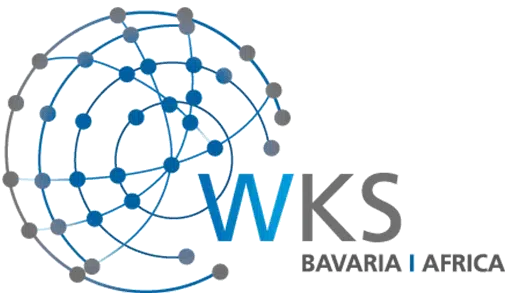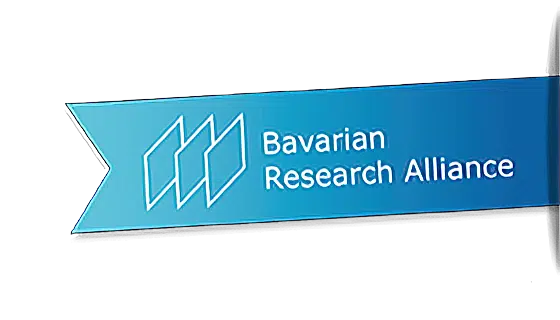Partnership between Nelson Mandela University and Kempten University of Applied Sciences
As part of the project “Establishing an Africa Office” (German: “Aufbau eines Afrika-Büros), Kempten University of Applied Sciences is cooperating with various African universities, including Nelson Mandela University in Gqeberha, South Africa. With their project, Kempten UAS pursues far-reaching goals: A central concern is the development of joint teaching formats, particularly in the areas of […]
Partnership between Namibia University of Science and Technology and Kempten University of Applied Sciences
As part of the project “Establishing an Africa Office” (German: “Aufbau eines Afrika-Büros), Kempten University of Applied Sciences is cooperating with various African universities, including Namibia University of Science and Technology in Windhoek, Namibia. With their project, Kempten UAS pursues far-reaching goals: A central concern is the development of joint teaching formats, particularly in the […]
Partnership between St. Paul’s University and Kempten University of Applied Sciences
As part of the project “Establishing an Africa Office” (German: “Aufbau eines Afrika-Büros), Kempten University of Applied Sciences is cooperating with various African universities, including St. Paul’s University in Limuru, Kenya. With their project, Kempten UAS pursues far-reaching goals: A central concern is the development of joint teaching formats, particularly in the areas of start-ups […]
Partnership of Hawassa University and Kempten University of Applied Sciences
As part of the project “Establishing an Africa Office” (German: “Aufbau eines Afrika-Büros), Kempten University of Applied Sciences is cooperating with various African universities, including Hawassa University in Hawassa, Ethiopia. With their project, Kempten UAS pursues far-reaching goals: A central concern is the development of joint teaching formats, particularly in the areas of start-ups and […]
Partnership between Debre Markos University and Kempten University of Applied Sciences
As part of the project “Establishing an Africa Office” (German: “Aufbau eines Afrika-Büros), Kempten University of Applied Sciences is cooperating with various African universities, including Debre Markos University in Debre Markos, Ethiopia. With their project, Kempten UAS pursues far-reaching goals: A central concern is the development of joint teaching formats, particularly in the areas of […]
Partnership between Addis Ababa University and Kempten University of Applied Sciences
As part of the project “Establishing an Africa Office” (German: “Aufbau eines Afrika-Büros), Kempten University of Applied Sciences is cooperating with different African universities, among them Addis Ababa University in Addis Ababa, Ethiopia. With their project, Kempten UAS pursues far-reaching goals: A central concern is the development of joint teaching formats, particularly in the areas […]
Partnership between University of Sfax and Kempten University of Applied Sciences
As part of the project “Establishing an Africa Office” (German: “Aufbau eines Afrika-Büros), Kempten University of Applied Sciences is cooperating with different African universities, among them University of Sfax in Sfax, Tunisia. With their project, Kempten UAS pursues far-reaching goals: A central concern is the development of joint teaching formats, particularly in the areas of […]
ProxIMed – Exploration and Implementation of Products with Alternative Proteins in Mediterranean Region
The aim of ProxIMed is to introduce proteins from sustainable sources into the food and feed systems of the Mediterranean region in order to promote and establish the use of alternative proteins. Novel processes and the value chain for proteins are analysed in terms of their ecological, economic and social impact.
TGCL – Tanzanian-German Centre for Eastern African Legal Studies
The Tanzanian-German Centre for Eastern African Legal Studies (TGCL) offers structured and highly specialised LLM and PhD programmes to aspiring lawyers from all Partner States of the East African Community and beyond to qualify them for leading positions in the region. The thematic focus of the TGCL is on regional integration law with a special […]
CHIDA – Inclusive Urban Development in Africa: Designing Nature-Based Solutions and Enhancing Citizenship to Mitigate Hazards and Livelihood Risks
Cities in sub-Saharan Africa are undergoing dynamic transformation processes and face a series of challenges. The CHIDA project is investigating these challenges using the nature-based solutions (NbS) approach. The international project consortium focuses on the interrelationships between NbS (especially urban green infrastructure – GI), civic engagement, livelihoods and food security. The project uses the example […]


